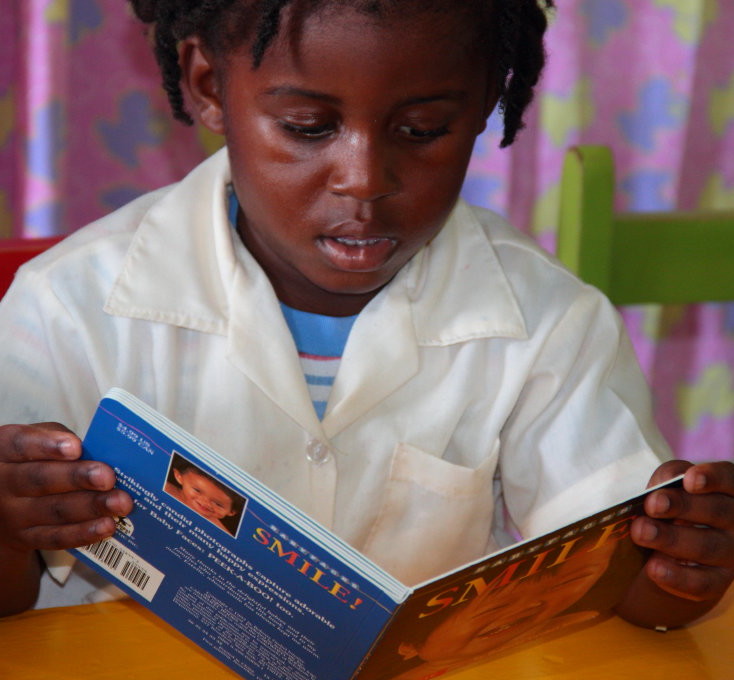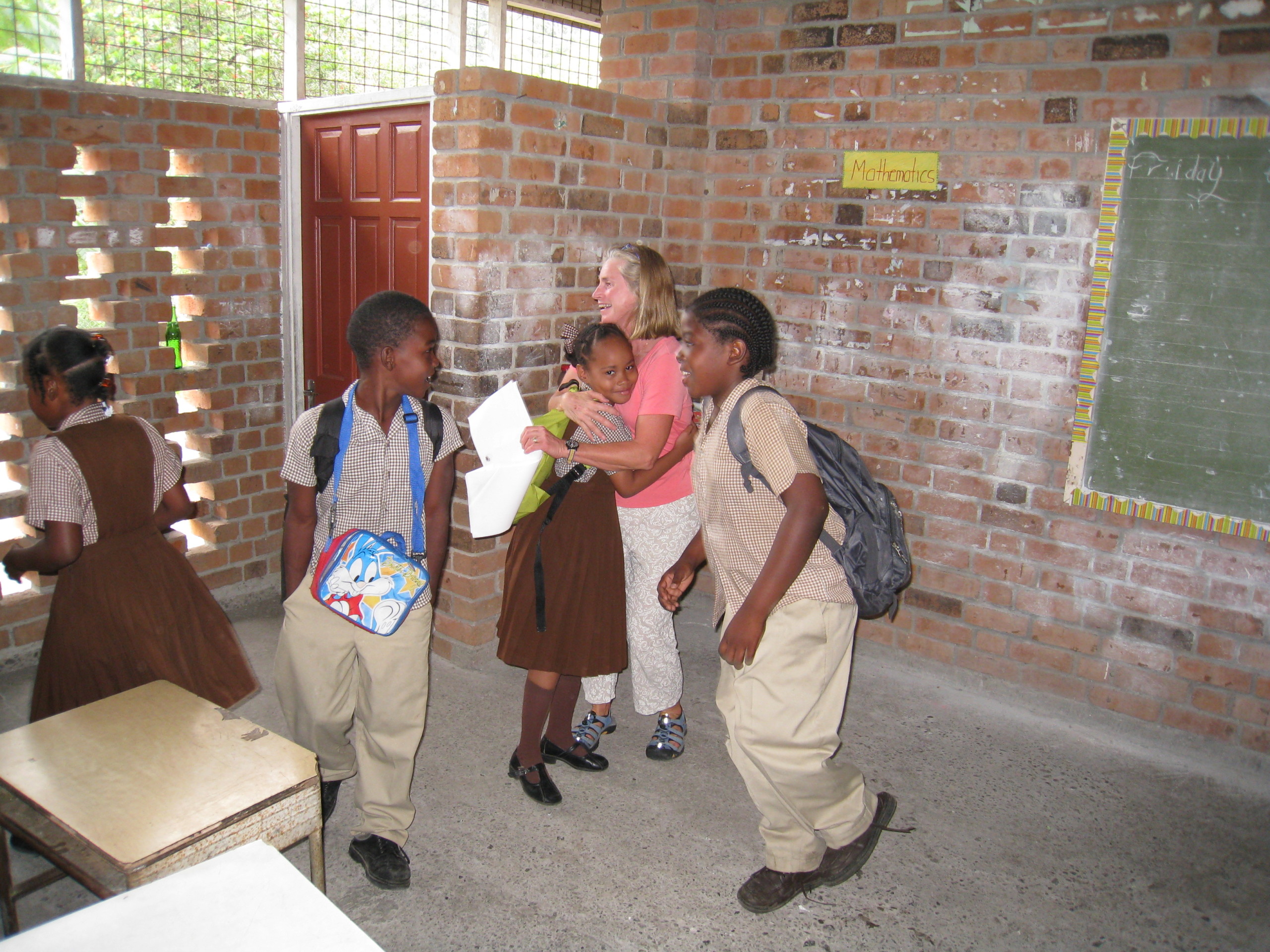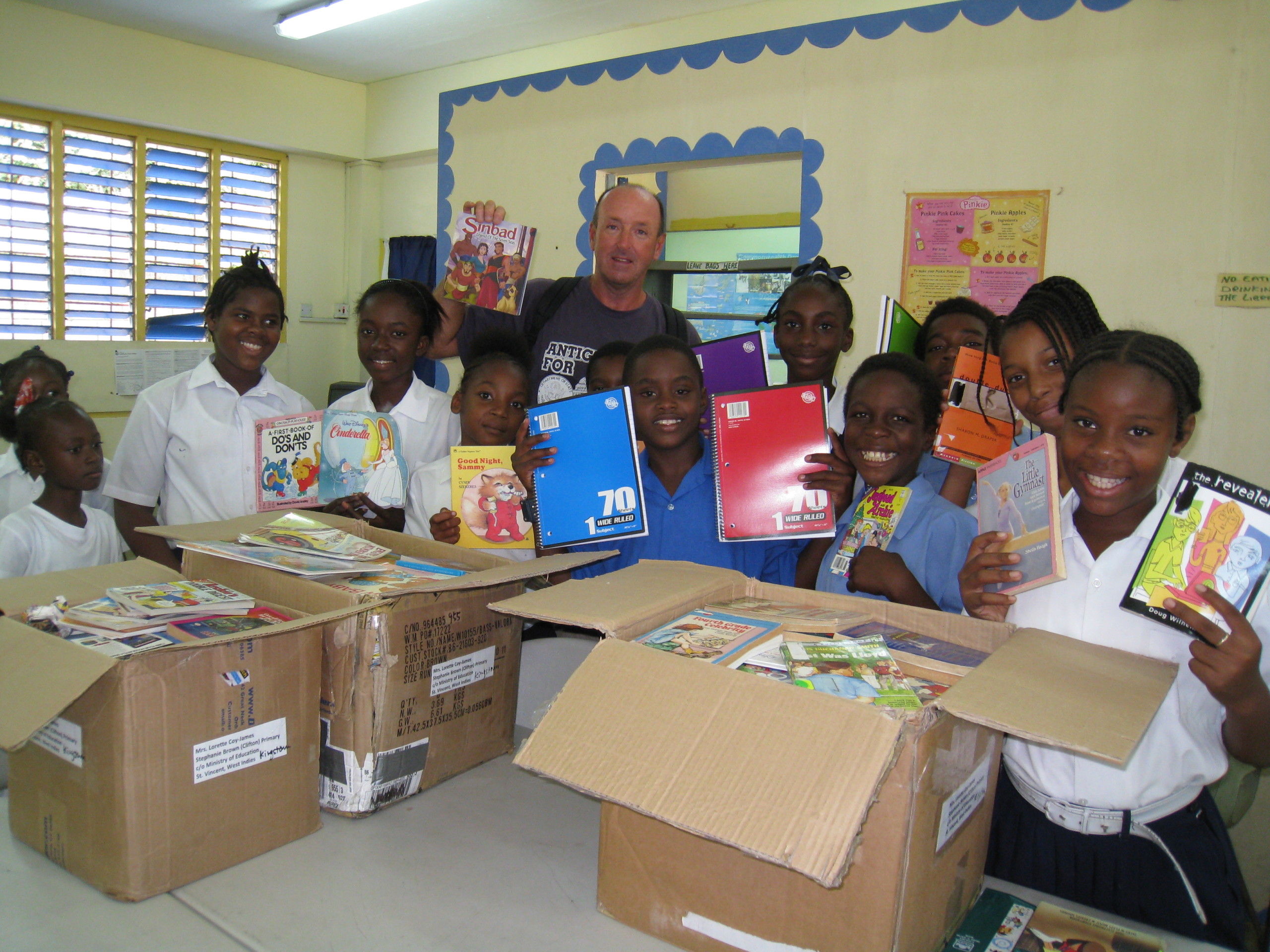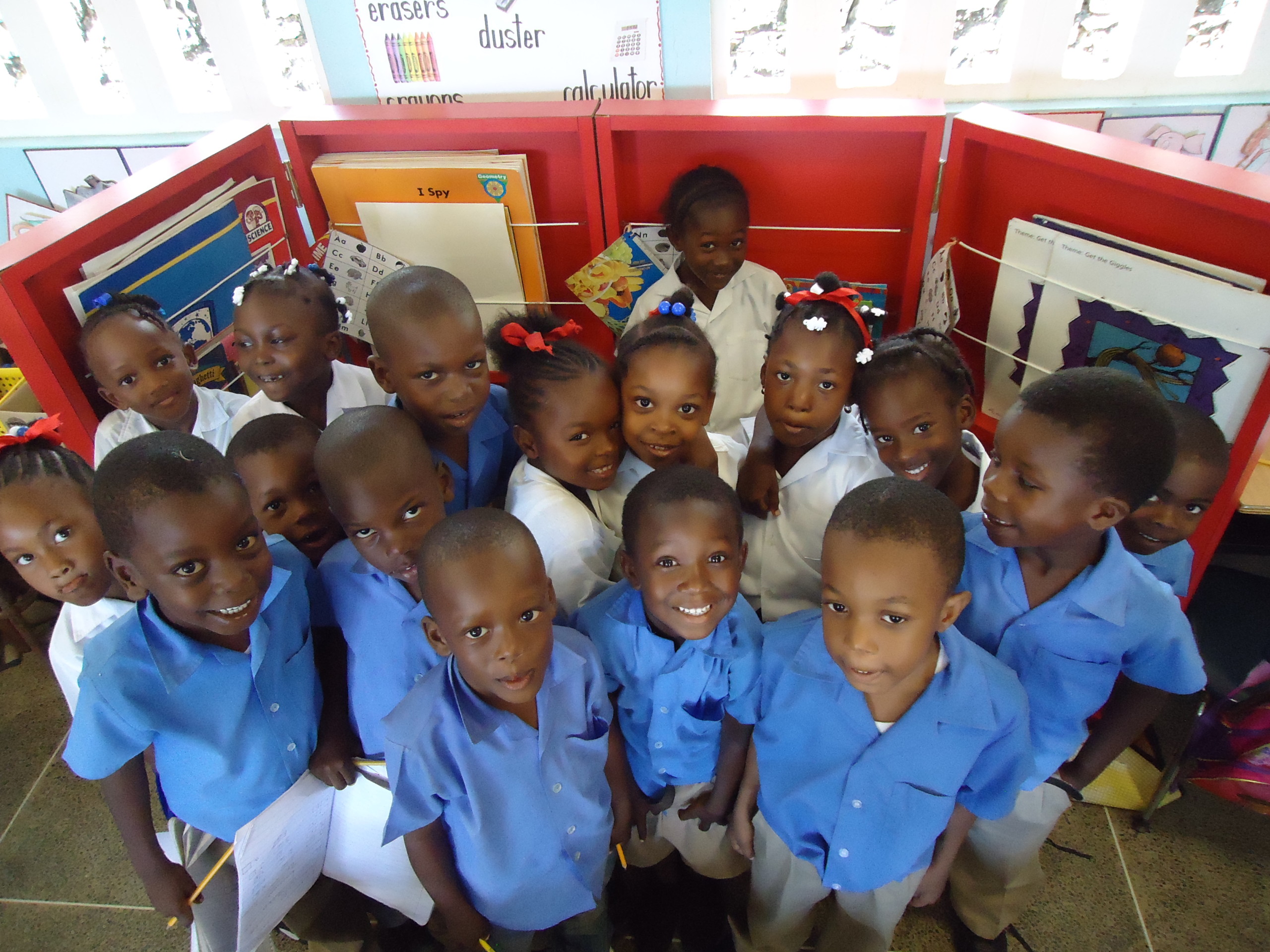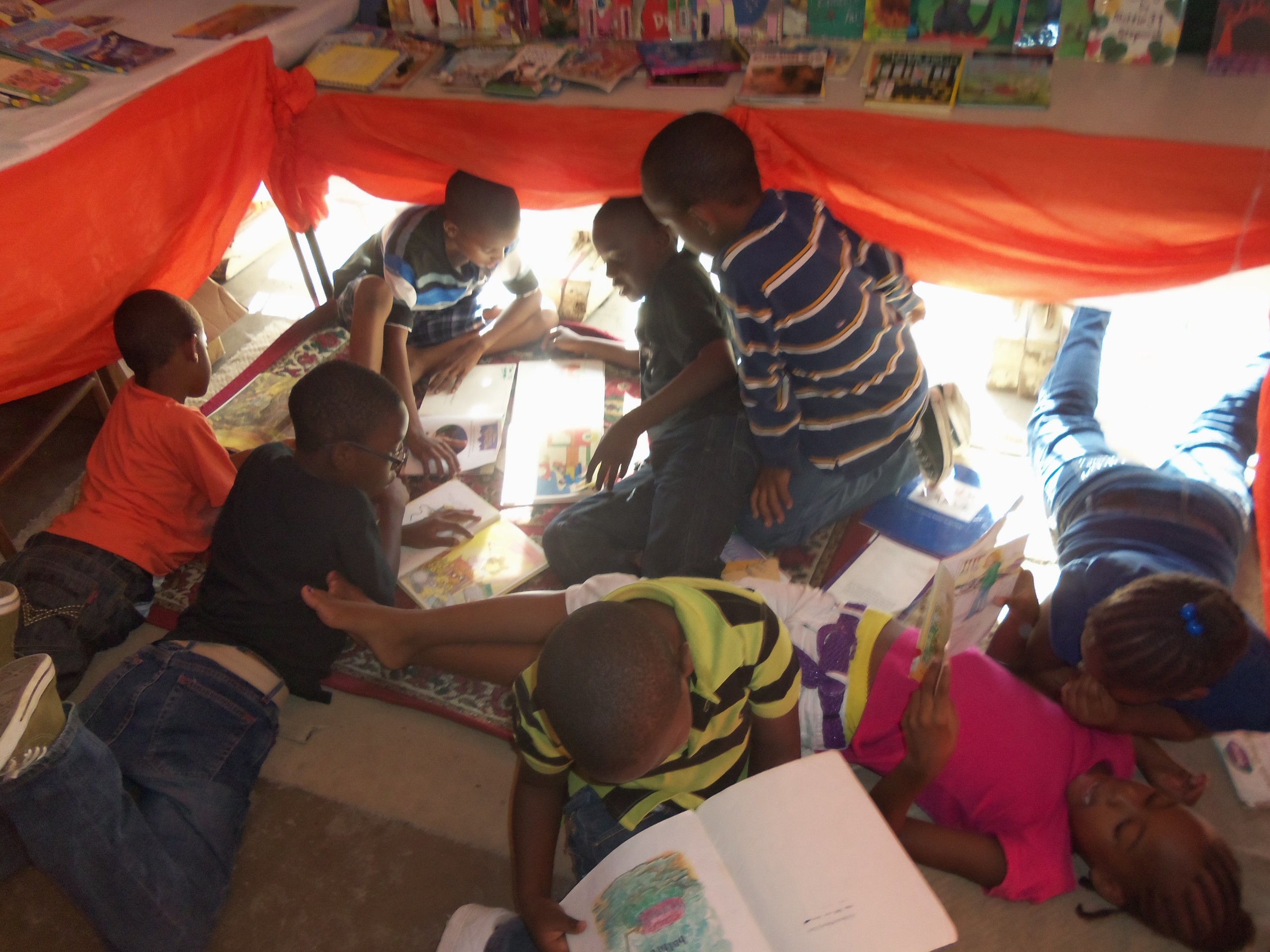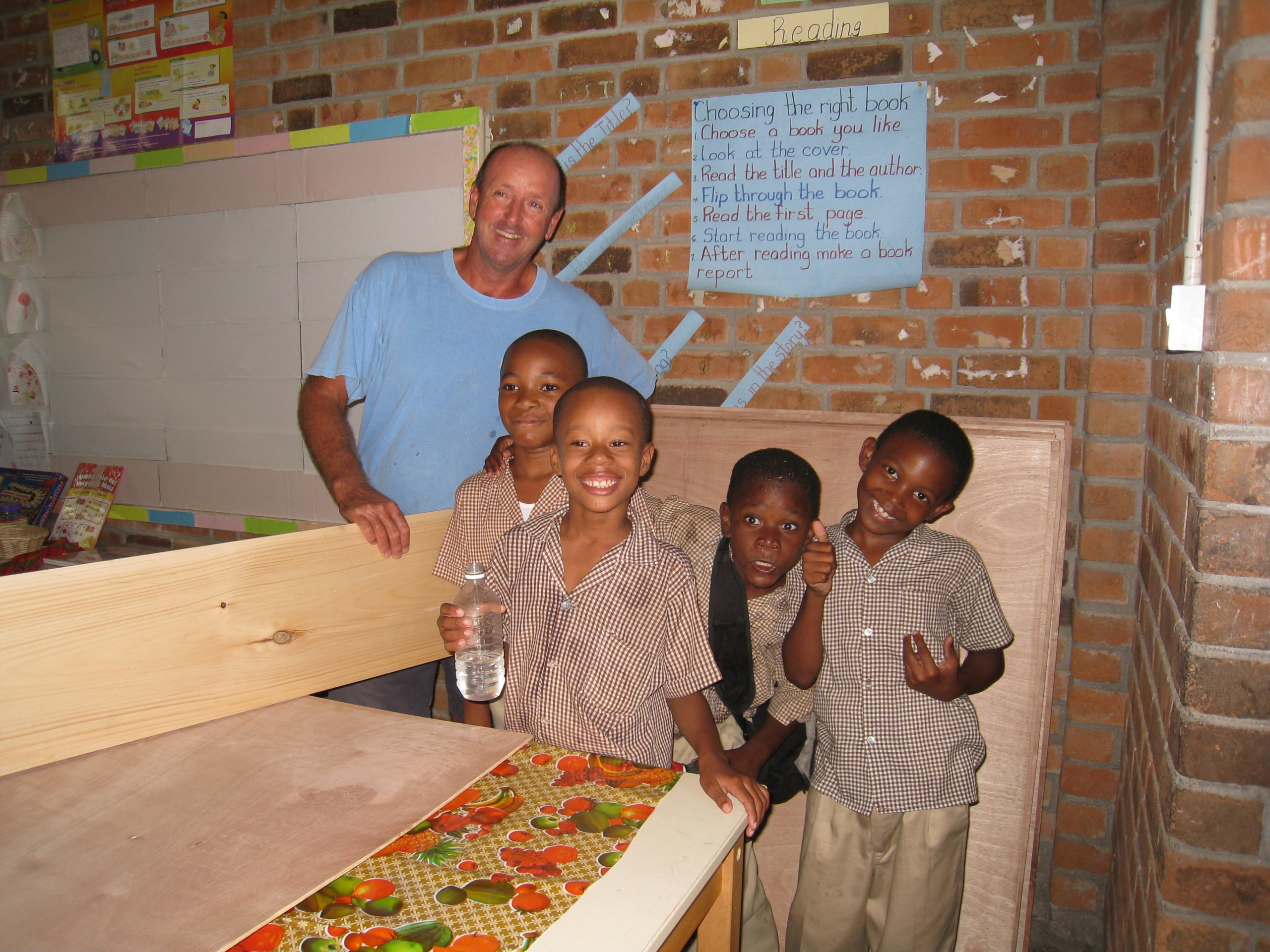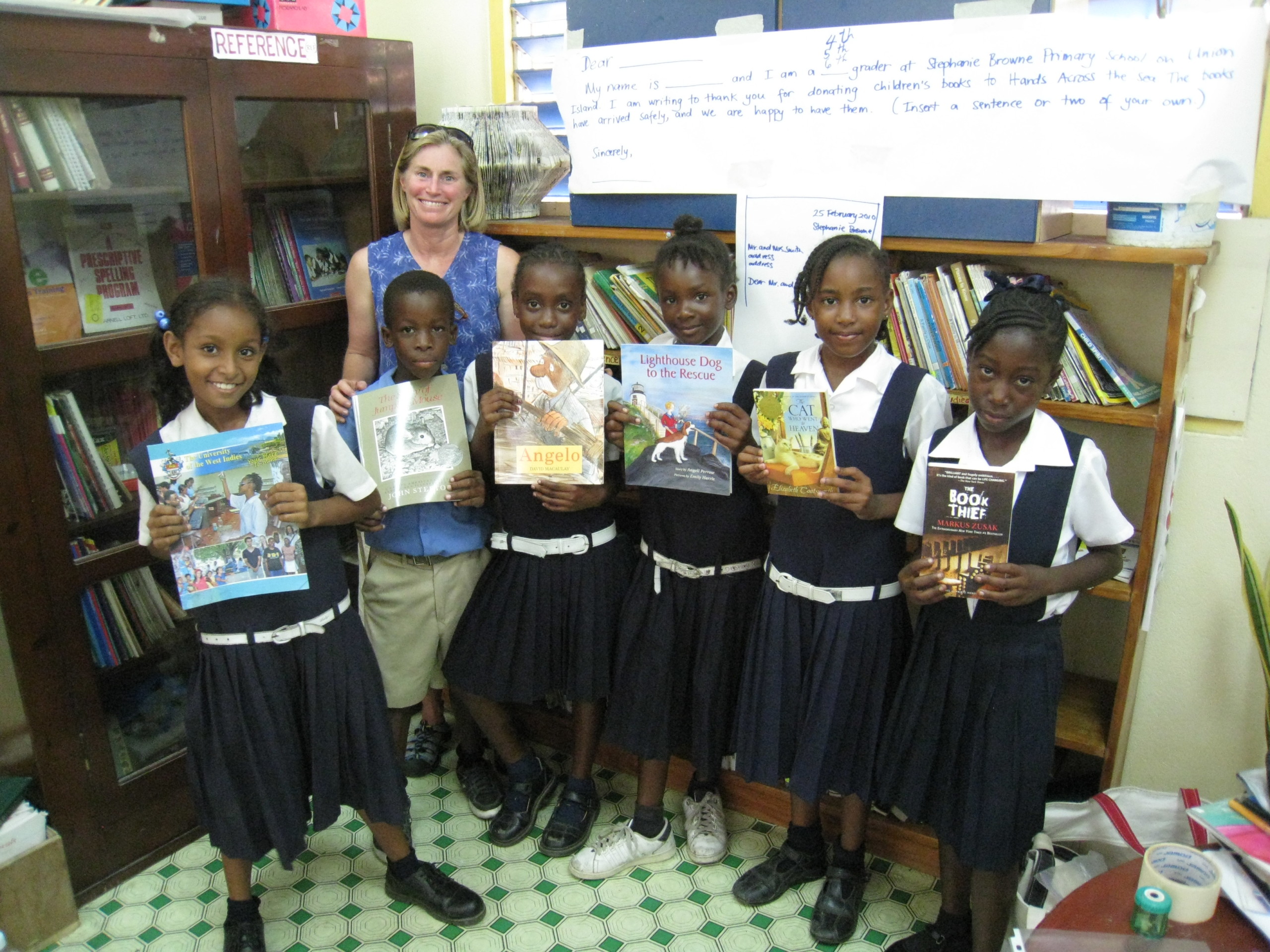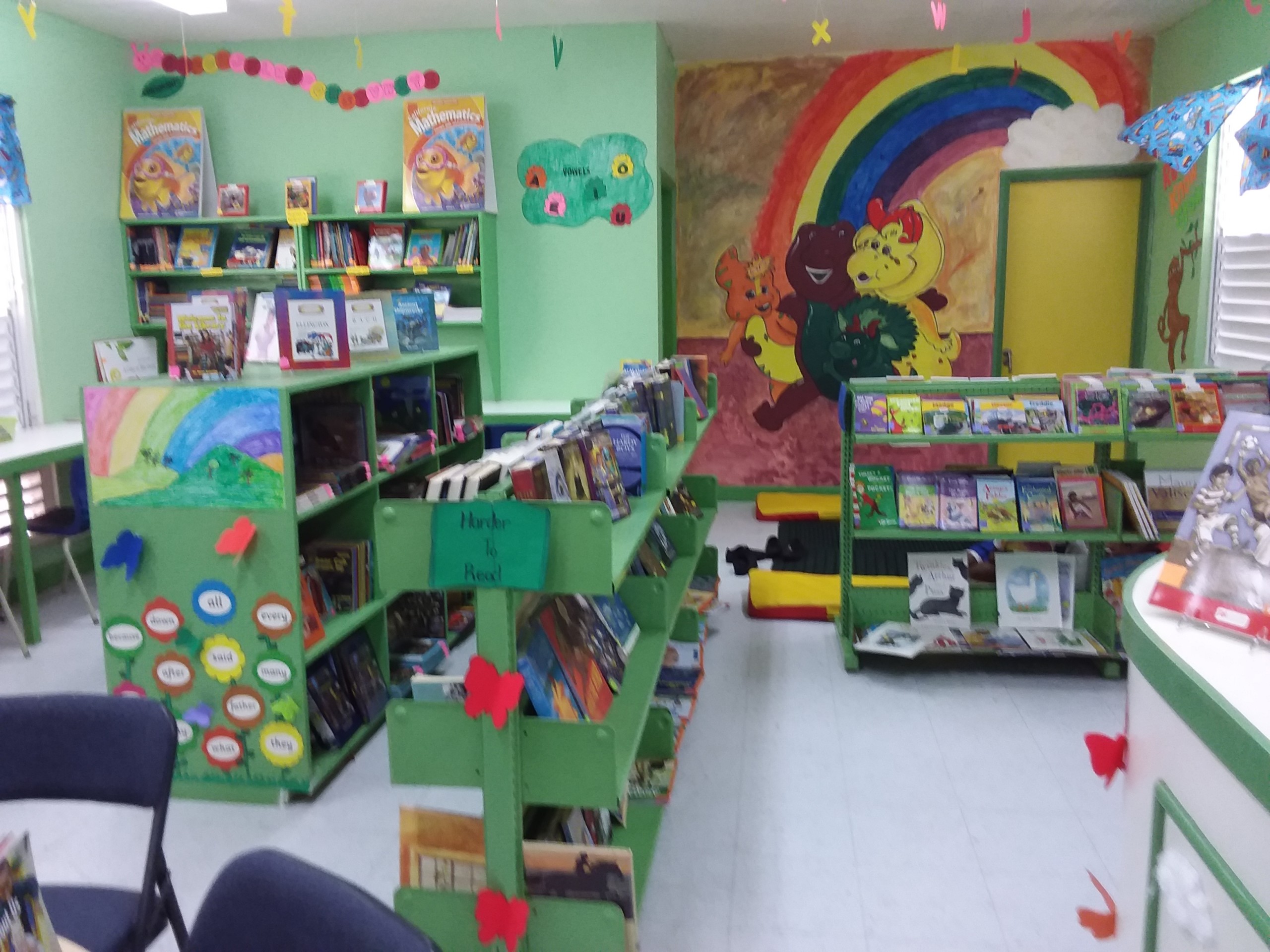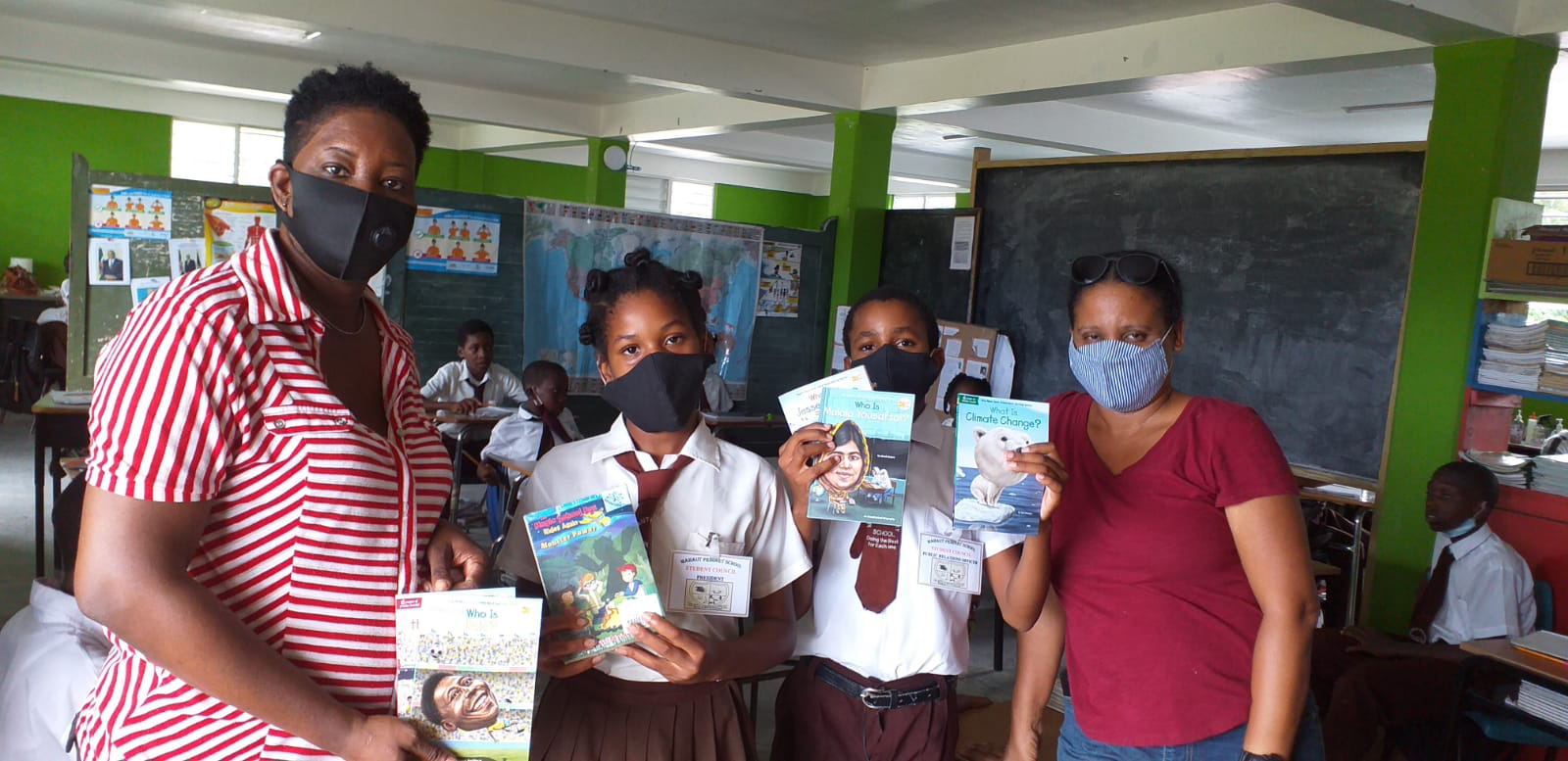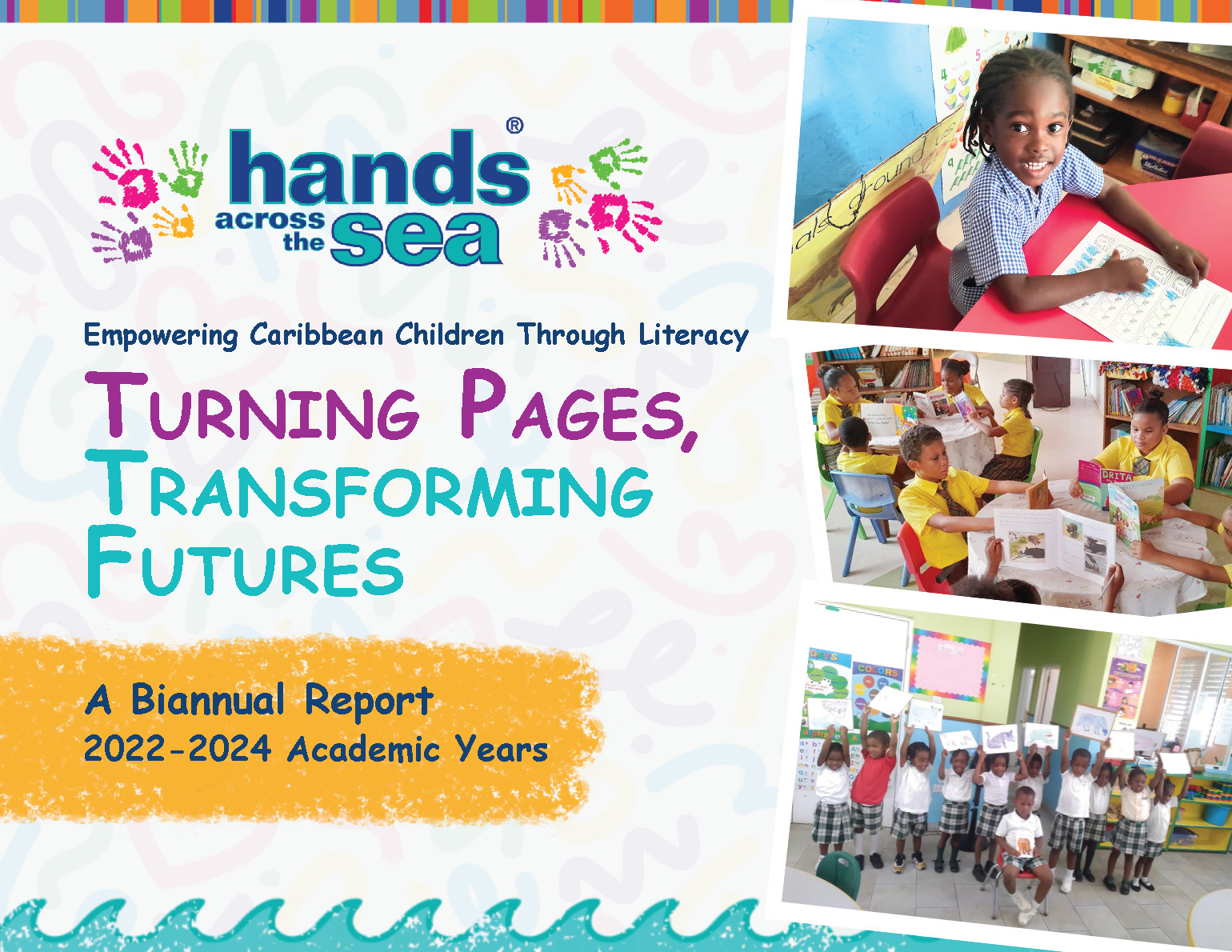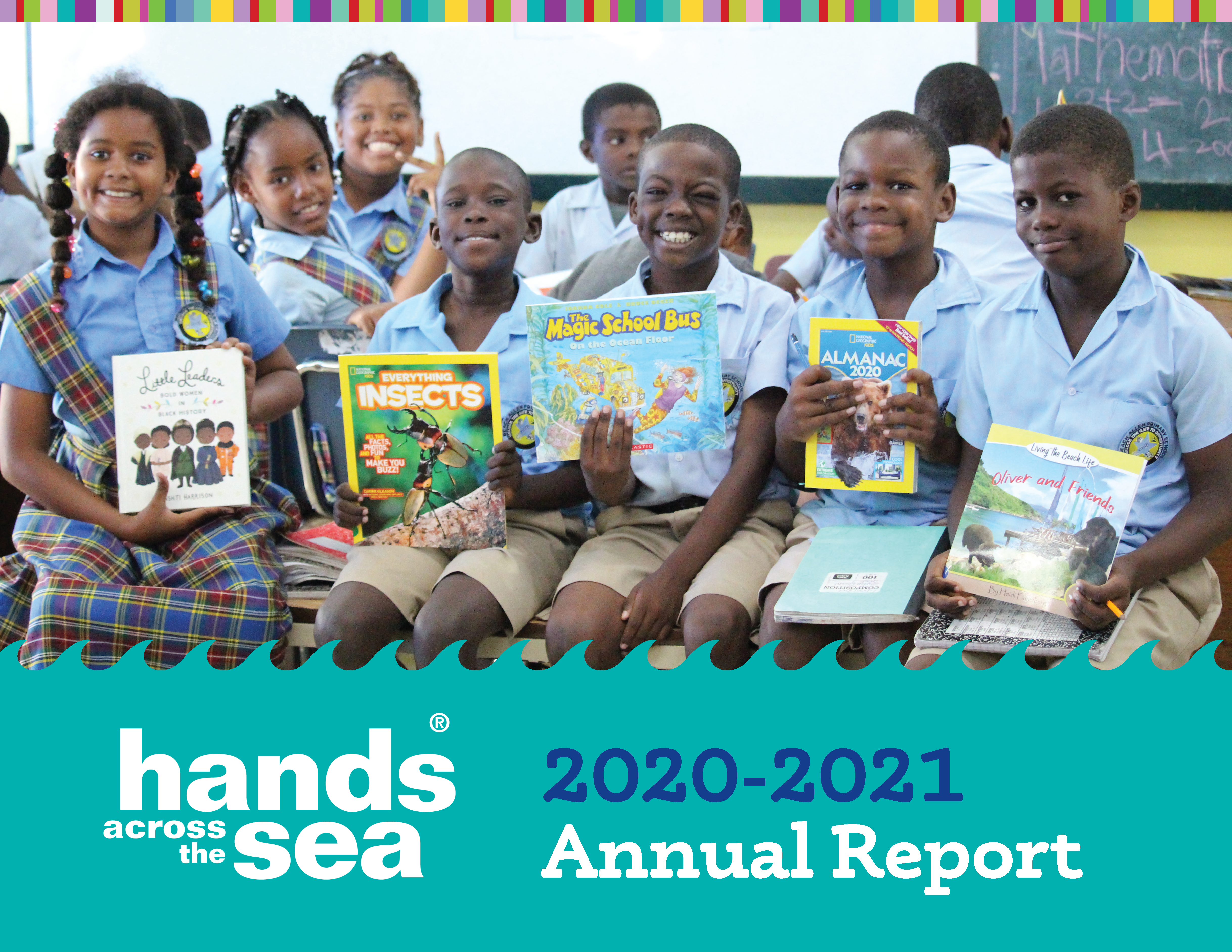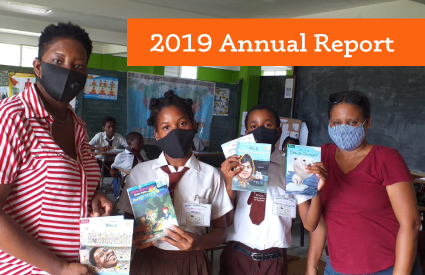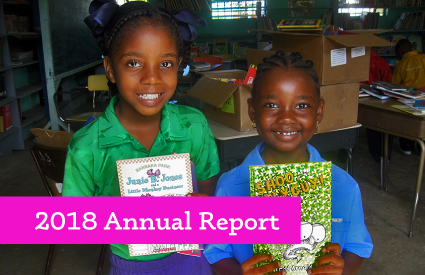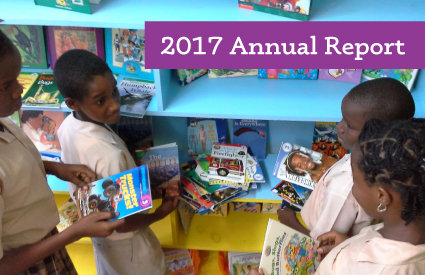Working with preschools, primary and secondary schools, Hands Across the Sea rejuvenates and stocks school libraries with amazing new books. Its Caribbean Literacy and School Support program, CLASS, helps sustain student reading gains by empowering teachers and students to operate high-functioning lending libraries.
Over the years, Hands Across the Sea has placed more than half a million new books in 883 schools and 55 community libraries. Consider however that this number amounts on average to just three books per child. Critically needed fundraising keeps the flow of great new books into the hands of children eager to read.
Yet, another generation of island children is at risk of lifelong disadvantages if they don’t learn to read by age six. Hands Across the Sea is in a race against time and resources to help address this need. More than 33 percent of children in this island paradise live in poverty. The ravages of climate change, devastating hurricanes and economic uncertainty affect the most vulnerable, the children.
Books are scarce in island homes. Most children are not exposed to books and reading until they reach a Hands Across the Sea library. By then precious learning and language development skills are all too often lost.
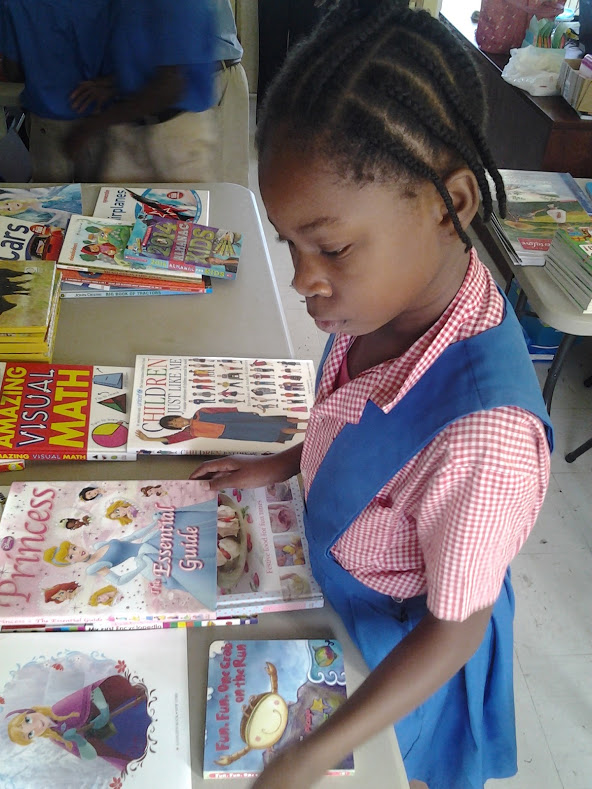
The neurological impact of learning to read is critical to a child’s brain development. The neurons of a healthy infant’s 200 million brain cells create 20,000 synapses each when properly stimulated. The daily impact of a parent talking, singing, and reading to an infant encourages the brain to make these new synaptic connections to store information.
The World Literacy Foundation says early reading exposure can influence a lifetime of success through brain development, gains in vocabulary, reading, writing, communication, reading for pleasure and influencing future job and career opportunities.
“Children begin to develop early forms of language and literacy ability concurrently and from the day they are born. Excellent literacy instruction is created in literacy-rich environments in good contexts through immersion in literacy experiences, expert instruction, practice and modeling by teachers — all with constructive feedback.”
Literacy Development in the Early Years Lesley Mandel Morrow, Rutgers, The State University of New Jersey, Ninth Edition
The leading literacy non-governmental organization in the Islands, Hands Across the Sea is recognized as a member of the Organization of Eastern Caribbean States (OECS) Regional Education Group and a Development Partnership to the OECS Education Management Unit (EDMU). These partnerships give Hands has a voice in advocating for reading advancement and supports the implementation of grassroots initiatives in schools.
Partnerships with The Peace Corps, banks, universities and colleges, business and volunteer organizations has helped further investment in bringing books to libraries and schools.
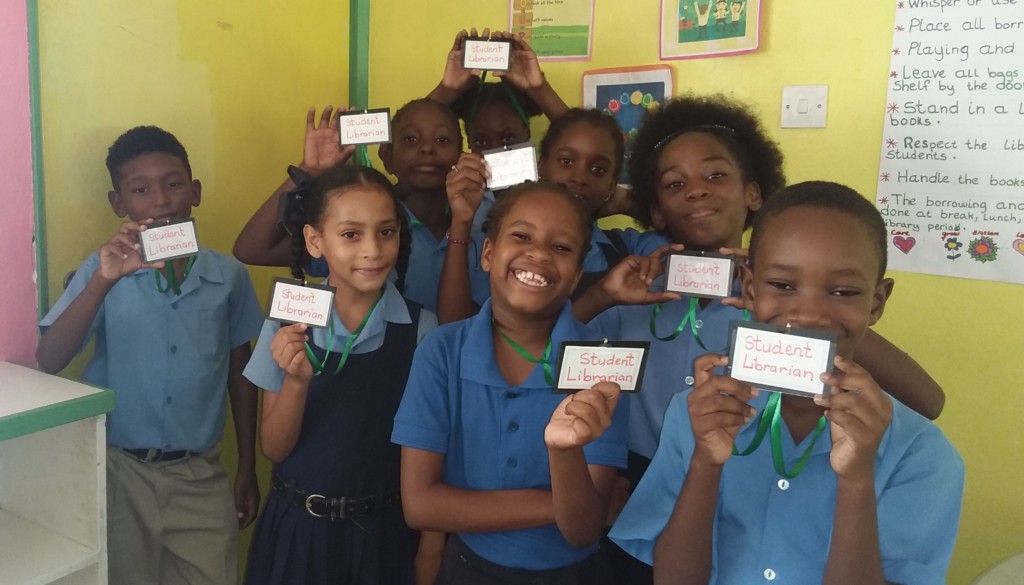
Experienced educational administrators known as “Literacy Links,” consult and curate child reading opportunities. Literacy Links motivate and mentor librarian leadership development and they rejuvenate and restock libraries with quality, culturally relevant books.
When the COVID-19 pandemic shut down schools and libraries, Hands Across the Sea created the Takeaway program. Parents can pick up book packets at their school library “so children can be pleasure reading for fun and fluency, comprehension, vocabulary, spelling, grammar, pronunciation and analytical thinking.”
Hands Across the Sea literally “wrote the book” Hands Across the Sea Library Manual for Primary Schools, to guide the sustainable sourcing for libraries. Two companion books are Teachers Resource Guide to the Library (Grades K-3), and the training guide, Hands Student Librarian.
These valuable library manuals and resource guides for teachers and student librarians represent 14 years of Hands Across the Sea best practice development. The manuals are a trusted resource and can be found in hundreds of schools throughout the Eastern Caribbean.
Sandals Foundation Board President Adam Stewart summed up the complex challenges facing the islands of the Eastern Caribbean concisely: “With…increasing threats from climate change, human capital flight and economic uncertainty, [Caribbean] people are forced to be as resilient as ever.”
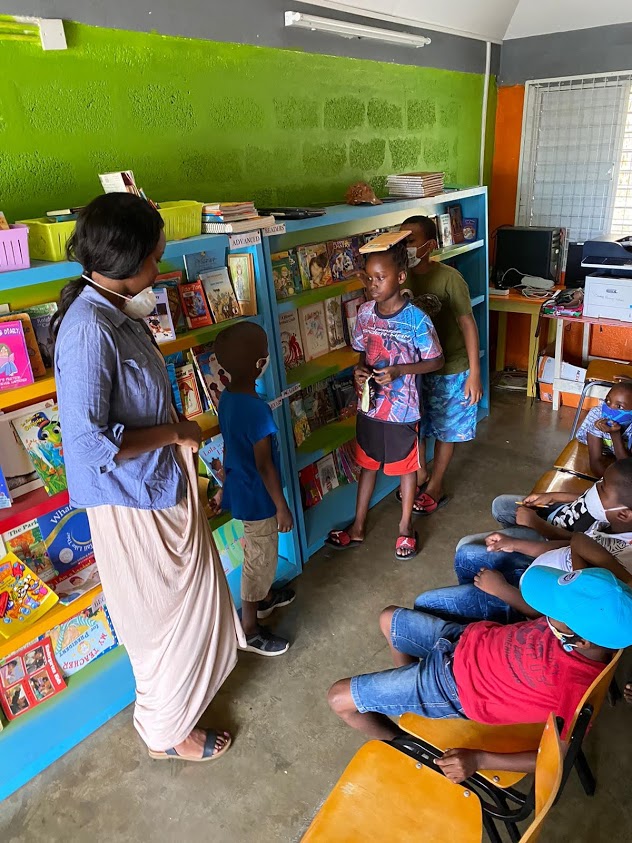
Children often bear the brunt of these challenges but also represent the future and the possibility for positive, sustainable change. Over the past 15 years, these children have been at the heart of Hands Across the Sea’s efforts. By creating libraries, building literacy skills, and contributing to better learning outcomes, we are seeing children flourish – prepared to pursue their educational and vocational aspirations, and empowered to participate meaningfully in their community and democracy.
Of literate children, Islands Senior Education Officer Hannah Brown says, “Today a Reader, Tomorrow a Leader.”

